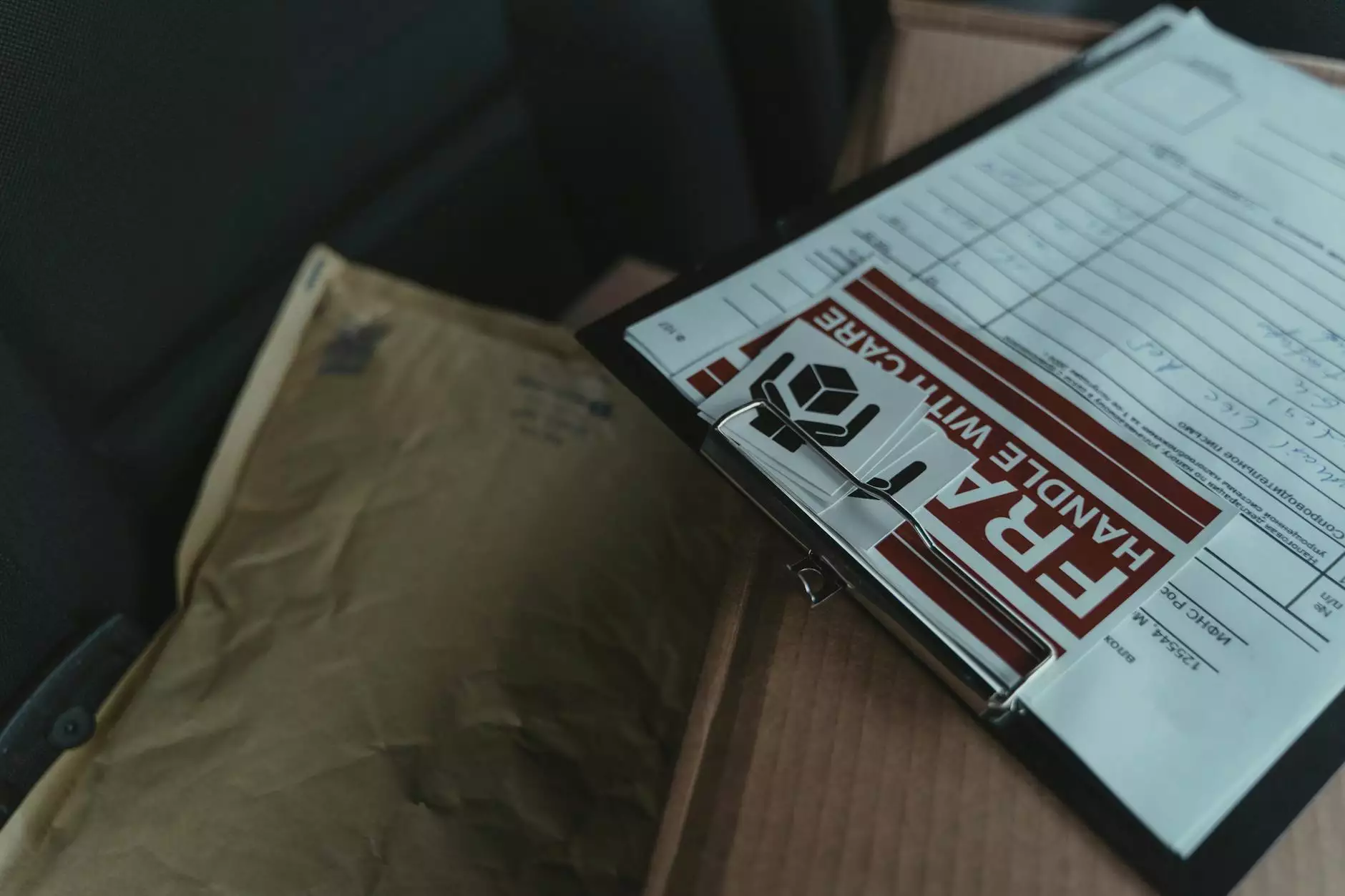Buying a Small Business Checklist

Embarking on the journey of entrepreneurship is an exciting venture, and buying a small business can be one of the best paths to achieving your goals. This guide serves as a comprehensive checklist designed to assist you in navigating the intricate process of purchasing a small business. Follow this checklist to ensure you make informed decisions that will lead to your success.
Understanding Your Motivations
Before you dive into the logistics of purchasing a business, it's essential to clarify your reasons for buying. Your motivations can significantly shape your approach and decision-making process. Consider the following:
- Are you looking for financial independence?
- Do you want to pursue a passion or interest?
- Are you aiming for increased personal satisfaction?
- Do you seek to expand your investment portfolio?
Defining Your Goals
After understanding your motivations, set clear goals for your business acquisition. What do you hope to achieve?
- What revenue targets do you have?
- What type of business aligns with your vision and skills?
- What geographical area are you interested in?
- What financial resources will you allocate for this investment?
Researching the Market
Market research is a critical step in your checklist when buying a small business. Equip yourself with knowledge regarding the industry you wish to enter:
- Examine the current demand and supply trends.
- Identify potential competitors and their strengths/weaknesses.
- Understand the regulatory environment affecting your business.
- Analyze market growth potential in your chosen industry.
Finding the Right Business
Once you've researched the market, it's time to look for potential businesses to buy. Use the following methods to locate a suitable business:
- Online business-for-sale marketplaces.
- Networking within relevant industry groups.
- Engaging a business broker who specializes in your area of interest.
- Examining local business listings in your desired area.
Evaluating Potential Businesses
As you start to identify potential acquisitions, you will need to conduct a thorough evaluation. This is where your checklist becomes crucial. Key aspects to review include:
- Financial Health: Review profit and loss statements, balance sheets, and cash flow statements for at least the last three years.
- Asset Valuation: Assess tangible and intangible assets, including equipment, inventory, brand value, and customer lists.
- Operations Assessment: Understand how the business operates day-to-day, including supply chain logistics and staffing.
- Legal Considerations: Verify the business complies with regulations and is free from pending litigations.
Conducting Due Diligence
Due diligence is a pivotal step in the purchasing process. This involves thoroughly investigating every aspect of the business to uncover any hidden issues. Components of due diligence include:
- Detailed examination of financial records with the help of an accountant.
- A review of customer contracts to ensure sustainability.
- Inspection of physical assets and facilities.
- Interviews with key employees to gauge company culture and operations.
Financing Your Purchase
Deciding how to finance your acquisition is critical. Options may include:
- Personal Savings: Using your funds could prevent debt accumulation.
- Bank Loans: Traditional financing through banks, usually requiring a solid business plan and creditworthiness.
- Seller Financing: A portion of the purchase price can be financed through the seller.
- Investors: Bring in partners or investors to share in the business risks and rewards.
Making an Offer
After completing your due diligence and securing financing, it’s time to make an official offer. Your offer should be carefully crafted, taking into account various factors such as:
- The business’s appraisal value.
- The current market conditions.
- Any identified risks through due diligence.
- Your own financial limitations.
Negotiating the Terms
Once your offer is made, you will enter a negotiation phase. This is an opportunity to address any concerns raised during due diligence and adjust terms as necessary. Key elements of negotiation may include:
- Sale price adjustments based on valuation.
- Transition support from the seller.
- Terms of payment.
- Contingencies for unforeseen circumstances.
Reviewing the Purchase Agreement
Upon reaching an agreement on terms, ensure that you review the purchase agreement meticulously. This contract outlines the sale’s terms and protections for both parties.
- Engage a lawyer experienced in business acquisitions to assist in this process.
- Ensure all terms match your negotiations accurately.
- Confirm that all contingencies are documented clearly.
Closing the Deal
The final step in your Buying a Small Business Checklist is to close the deal. This typically involves:
- Final payment completion.
- Transferring licenses and permits.
- Establishing ownership of assets.
- Notifying clients about the change in ownership.
Post-Purchase Transition
After purchasing the business, a successful transition is paramount for sustainability. Focus on:
- Staff Integration: Build rapport and establish trust with existing staff.
- Customer Relationships: Engage with customers to reassure them of continued service quality.
- Operational Adjustments: Implement any changes necessary without disrupting current operations.
Conclusion
Buying a small business is a complex but rewarding process that requires careful planning and thorough execution. By following this comprehensive Buying a Small Business Checklist, you are positioned for success. Remember that every business acquisition is unique, but with the right knowledge and resources, you can navigate this journey smoothly. Embracing entrepreneurship opens doors to unparalleled opportunities, and with diligence and determination, you can achieve your business dreams.
For more resources on business consulting and thriving in your business endeavors, visit openfair.co.



